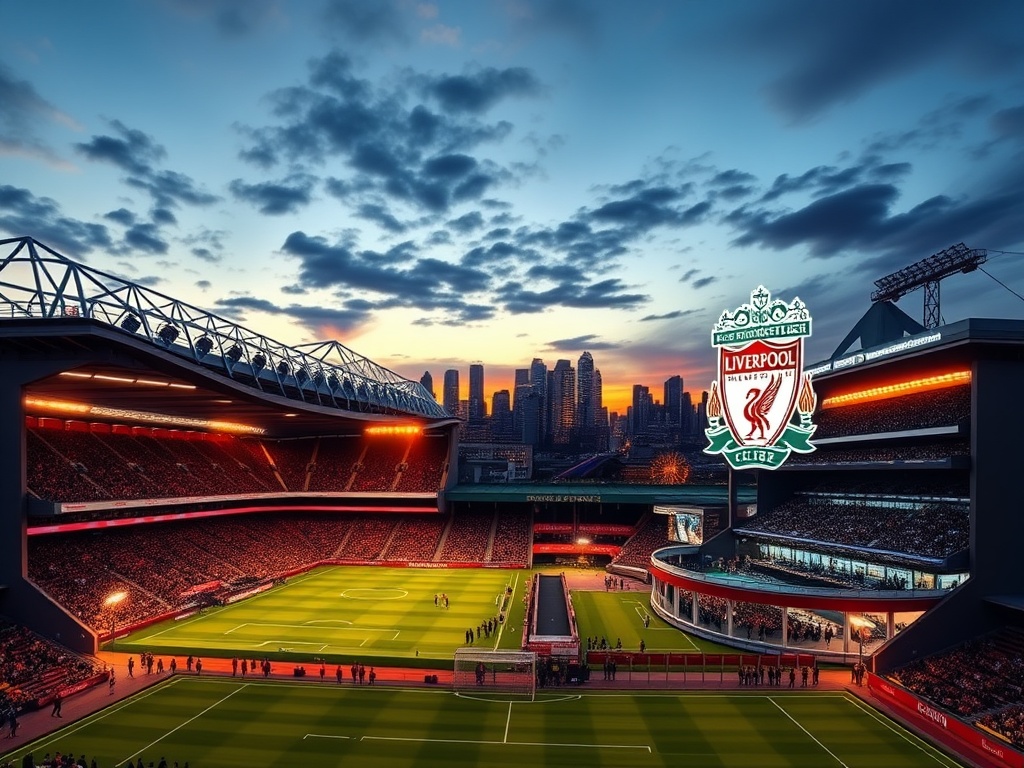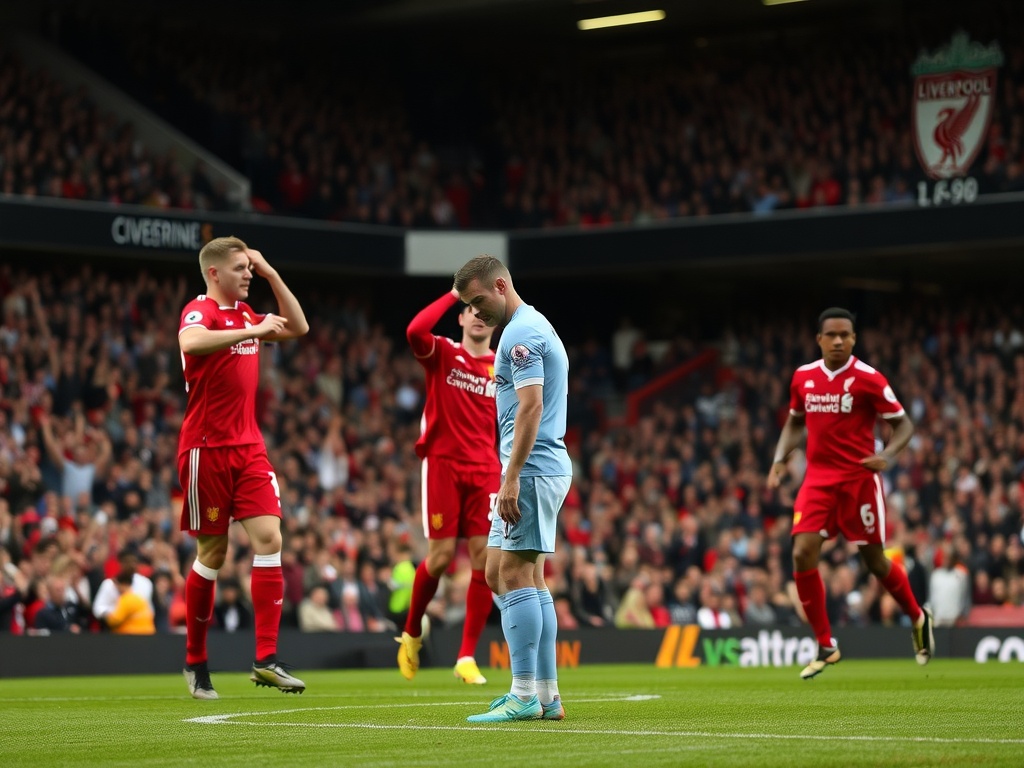ETIHAD STADIUM: A Tale of Two Giants
In a clash that echoed the recent turmoil at the Bernabeu, Manchester City faced a brutal dismantling at the hands of Liverpool, a team that has now firmly established its dominance in English football. This defeat was not merely a setback; it marked the end of City’s reign over the Premier League, signaling a shift in power back to their rivals from Merseyside. The defeat was City’s 14th in their last 27 matches across competitions, a statistic that is both shocking and revealing.
As Pep Guardiola surveyed the pitch, frustration was etched across his face, a stark contrast to the composed demeanor he once exuded. The errors were glaring, each misstep a small crack in his once-unshakeable confidence. The arms were raised in exasperation, directed toward his bench, seeking solace or perhaps guidance as he grappled with the weight of expectations. Liverpool, fueled by an undeniable momentum, mirrored the very essence that once defined Guardiola’s City; a calm, collected approach that now seemed to elude the home side.
The Moment of Truth

The sight of 18-year-old Rico Lewis, dwarfed by the towering presence of Virgil van Dijk during a corner kick, encapsulated the stark contrast in this battle. Liverpool seized the advantage, scoring from that very corner, showcasing their confidence and tactical prowess. Mo Salah, ever the match-winner, executed a well-rehearsed training ground routine, albeit aided by a fortunate deflection, which he celebrated with a swagger that epitomizes the confidence of a top player.
Guardiola, visibly shaken, appeared to will the ground to open up and swallow him whole. His attire, ill-fitting and flapping in the wind, only added to the image of a man increasingly adrift. The rhythmic and fluid play that characterized City’s four consecutive title victories now seemed like a distant memory, replaced by a disjointed series of individual efforts that lacked cohesion.
A Glimmer of Hope?
Even in the midst of struggle, City displayed determination. They surged forward with intent, yet much of their advance felt unconvincing, lacking the synchronized precision that had once defined their game. Guardiola’s tactical acumen was under scrutiny as he sought to recalibrate his team during a stoppage in play caused by an injury to Alex Mac Allister. With players gathered along the touchline for hydration, Guardiola seized the opportunity to impart wisdom to Omar Marmoush, whose earlier equalizer had been ruled offside. His fervent instructions, delivered with a machine-gun intensity, contrasted sharply with the lack of clarity exhibited on the pitch by his players.
Guardiola’s visible agitation only grew as Liverpool doubled their lead, his fiery Catalan temperament evident as he paced the sidelines. The anxiety of the manager seemed to seep into his players, who appeared burdened by the weight of expectations. If there was a moment that encapsulated City’s decline, it was the sight of the young Abdukodir Khusanov, sprawled on the ground after failing to close down Dominik Szoboszlai for Liverpool’s second goal.
The Harsh Reality
The first half culminated in a disastrous attempt by Kevin De Bruyne, whose left-footed shot epitomized the chaos enveloping the City camp. De Bruyne, absent from the Madrid encounter, left the pitch early, a reminder that even the most talented players have their limits. Guardiola’s realization of this fact seemed belated, as the game evolved beyond the grasp of his once-great creation.
As the match wore on, City’s struggles became more apparent: De Bruyne departed without completing the game, Bernardo Silva remained an unused substitute, and Ilkay Gundogan, who had been overwhelmed in Madrid, was only brought on late. It was a stark reminder that City was floundering against a Liverpool side that played with both vigor and confidence, leaving the former champions to ponder their place in the ever-changing landscape of English football.
